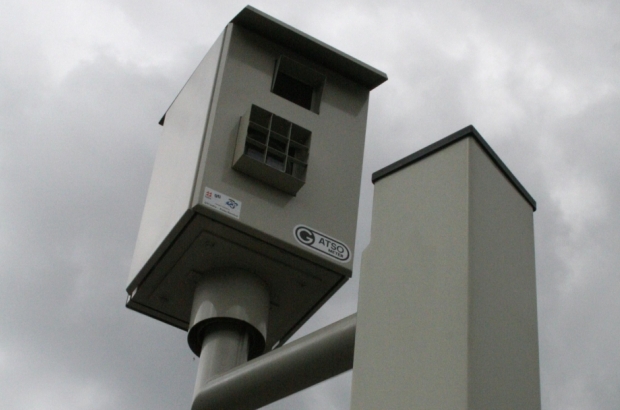- Daily & Weekly newsletters
- Buy & download The Bulletin
- Comment on our articles
After a speed camera… another speed camera
Belgium’s federal traffic police does not intend to relax its efforts to tackle speeding on the motorway, several newspapers report today, and has started installing several speed cameras in a row on some stretches of road. "Far too many drivers, having just passed a speed camera, consider that the coast is clear. I would like to see this project implemented in the coming weeks," says Chief Superintendent Michaël Jonniaux, singling out the E411 and E40 motorways. According to the authorities, road safety policies deliver good results, although the number of fatalities is still too high: the death toll for Belgian motorways has gone down from 192 in 2006 to 118 in 2012. The number of speeding offences, however, has doubled over the same period, reaching 1.2 million last year. " Belgian motorists still do not grasp that speeding is a genuine problem – and the number one cause of deaths on our roads," says Jonniaux.















Comments
There is a simple answer to reduce speeding, fuel consumption, road rage and accidents:
Base the level of road tax (and car insurance) on how much the driver uses his brakes. Checking on it would be easy using gps and accelerometer technology.
I can't think of anything worse than Mr Nunn's solution! You then give the State permission to monitor how you drive. And would you tax people more if they use their brakes more, or more if they use them less? A better way of reducing speeding is fairer enforcement.
First you need to ensure that there are plenty of signs indicating speed limits. If you place speed limit reminders and warn of radar, most people will slow down. The federal police can learn from how signage is managed in Brussels what is fair, what works and what does not.
If, for Brussels, the police simply rely on the 50kph everywhere limit (except where exceptions are indicated), then they are doing a poor job addressing speeding in areas where it is genuinely easy to speed. If the police ticket offenders with a 50 euro fine per offence, drivers will get the message and change their driving style. If the police set out to trap drivers in certain parts of the town and then stick them with a 400 to 800 euro fine, they will reasonably ask whether they are being fined or taxed and, perhaps, how moral such an approach actually is. To give an example...:
It is curious how there are "50 rappel" signs along the full length of Boulevard General Wahis and Boulevard Lambermont (correct and fair approach to policing speed) but on the upper side of Meiser, specifically Boulevard August Reyers and Boulevard Brand Whitlock, where the road looks more like a three-lane highway than a 50km city road, there are no signs. And here, most commonly, the police set their speed trap vans. This is not fair policing. This is encouraging speeding and then trapping those who do so. It is rare that anyone drives along here at 50 kph, mainly because it feels very slow and there are no speed reminders.
In a decade or two we will see more computer integrated driving systems steered by a RF network that will drive your car. It will be very likely that this will include a black box.... You might have to insert your ID card as a driver key. Imagine that at the end of the year you have to present your key chip card to a tax and insurance controlling unit... imaginary? Certainly not... Evolutionists have predicted that the already present flying car concepts will become airborne once road traffic rolls without accidents... and with the driver-less vehicles on test since some time we are definitely heading in that direction